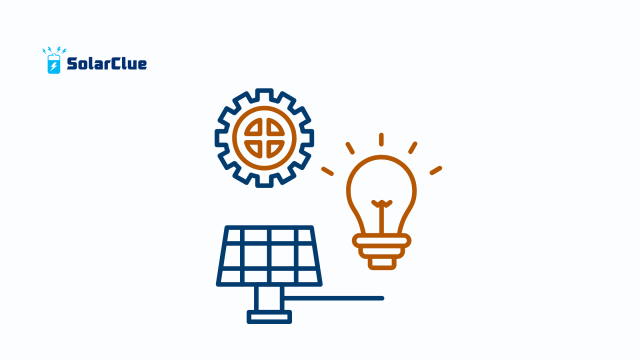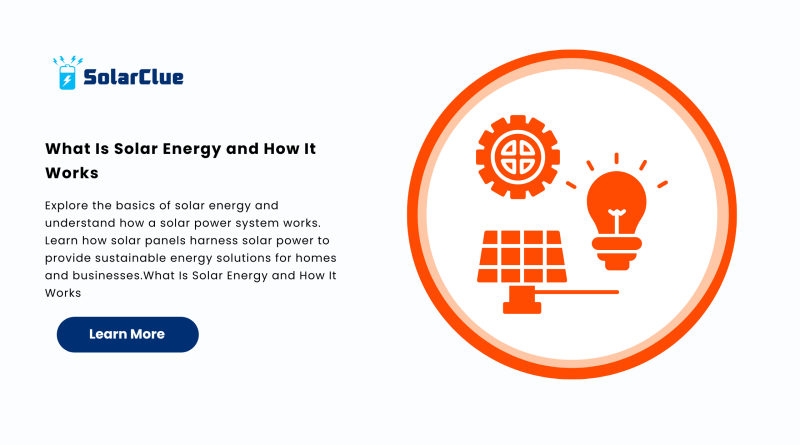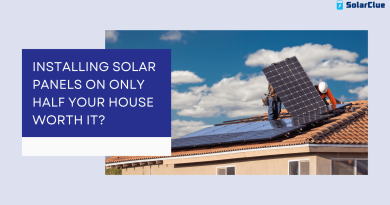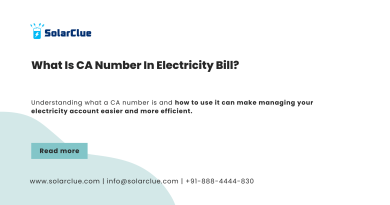What Is Solar Energy and How It Works
Solar energy is the energy that we derive from the sun’s rays. It’s one of the most abundant and renewable resources available on Earth. By capturing the sun’s energy using solar panels, we can convert it into electricity or heat, making it an ideal solution for sustainable energy. Solar power, as an alternative to traditional fossil fuels, has gained popularity due to its ability to reduce carbon footprints and lower energy costs.
Solar energy is harnessed through two primary methods:
-
Photovoltaic (PV) Systems: These systems use solar panels to convert sunlight directly into electricity.
-
Solar Thermal Systems: These systems use sunlight to generate heat, which can be used for heating water or air.
In this blog, we’ll focus on how solar energy works in photovoltaic systems, which are the most commonly used for residential and commercial power generation.
Table of Contents
How Solar Energy Works
The basic function of a solar power system is relatively simple. The sun’s rays hit the solar panels, and those panels convert the sunlight into electricity that can be used to power homes, businesses, and other applications. But how exactly does this conversion take place?
Step 1: Solar Panels Capture Sunlight
Solar panels are made up of photovoltaic cells, typically made from silicon. When sunlight hits the panel, it excites electrons within the silicon, generating an electric current. This phenomenon is known as the photovoltaic effect, and it’s what allows solar panels to generate electricity.
Step 2: Inverter Converts DC to AC Power
The electricity generated by solar panels is in the form of direct current (DC), but most homes and appliances use alternating current (AC). The solar power system includes an inverter that converts DC into AC, making it usable for everyday applications.
Step 3: Power Distribution
Once converted, the electricity flows from the inverter to your home or business, where it powers appliances, lights, and other electrical systems. If the system generates more electricity than you use, the excess power can be sent back to the grid, earning you credits in some cases through net metering.
Step 4: Storing Energy for Later Use
Many solar power systems include solar batteries to store excess energy. This stored energy can be used during cloudy days or at night when the sun isn’t available. Solar batteries ensure that your home or business continues to have access to power even when solar generation is low.
Benefits of Solar Energy
1. Environmental Impact
One of the biggest advantages of using solar energy is its minimal environmental impact. Solar energy is a clean, renewable resource that produces no greenhouse gas emissions during operation. By reducing reliance on fossil fuels, solar energy helps decrease air pollution and combat climate change.
2. Cost Savings
The cost of solar panels has decreased significantly over the years, making it more affordable for homeowners and businesses. While the initial investment might be high, the savings on energy bills over time can offset the installation costs. Additionally, with incentives and subsidies available in many regions, you can further reduce the upfront expense.
3. Energy Independence
By installing a solar power system, you can reduce or eliminate your dependence on grid electricity. This makes you less vulnerable to power outages and fluctuating energy prices. It also offers long-term energy security, especially as electricity prices rise.
4. Low Maintenance Requirements
Once installed, solar panels require minimal maintenance. They are durable, with most systems lasting 25 years or more. Occasional cleaning and regular inspections are usually sufficient to keep the system running smoothly.

Types of Solar Power Systems
1. Grid-Tied Solar Power Systems
These systems are connected to the electricity grid. The primary benefit is the ability to sell back any excess electricity you generate to the grid, often through net metering programs. This helps you recover the cost of your system and ensures you always have access to power.
2. Off-Grid Solar Power Systems
Off-grid systems are standalone systems that operate independently of the electricity grid. These are perfect for remote locations or places where grid power is unreliable. They typically include solar batteries to store energy for times when solar generation is low.
3. Hybrid Solar Power Systems
Hybrid systems combine the benefits of both grid-tied and off-grid systems. They have the ability to store energy in solar batteries and can be connected to the grid when necessary. This provides a backup power source and the ability to sell excess power.
Frequently Asked Questions (FAQs)
1. How do solar panels generate electricity?
Solar panels generate electricity through the photovoltaic effect. When sunlight hits the solar cells in the panel, it excites electrons in the semiconductor material, creating an electric current. This current is then converted into usable electricity.
2. How much do solar panels cost?
The cost of solar panels depends on various factors such as the type of panel, the size of your system, and installation fees. However, the price of solar panels has decreased significantly over the years, making them more accessible to homeowners and businesses.
3. How long do solar panels last?
On average, solar panels can last up to 25 to 30 years with proper maintenance. Over time, their efficiency may decrease slightly, but they will still continue to generate electricity for decades.
4. What are the maintenance requirements for solar panels?
Solar panels require minimal maintenance. Regular cleaning to remove dirt and debris, as well as periodic inspections to check for damage, are usually sufficient. Some areas may require more frequent cleaning depending on dust and dirt accumulation.
5. Can I use solar energy at night?
Yes! With a solar power system that includes solar batteries, you can store excess energy during the day and use it at night when the sun isn’t shining. This ensures a continuous supply of electricity, even after dark.
Conclusion
In conclusion, solar energy is a powerful and sustainable solution for meeting our energy needs. By harnessing the sun’s power through solar panels, we can reduce our reliance on fossil fuels, save money, and help protect the environment. If you’re interested in exploring the benefits of solar power, consider installing a solar power system for your home or business.
To learn more about solar energy solutions, visit SolarClue and explore our range of solar panels and installation services. For expert advice and tips on optimizing your solar power system, head over to blog.solarclue.com.



